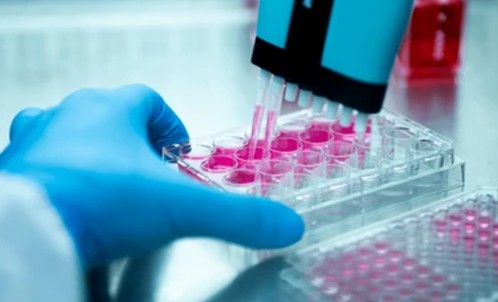The Rise of In Vitro Testing in Drug Development
The landscape of drug development has evolved significantly over the past few decades, with in vitro testing becoming increasingly integral to the process. This shift is driven by a combination of ethical considerations, technological innovations, and regulatory changes.

Overview of In Vitro Testing
In vitro testing refers to biological experiments conducted outside of a living organism, typically in controlled laboratory environments using cells, tissues, or biological molecules. The term "in vitro" is derived from Latin, meaning "in glass," reflecting the use of glass containers like Petri dishes or test tubes where these experiments take place. This approach contrasts with in vivo testing, which involves experiments conducted within living organisms.
Common methods include cell-based assays, biochemical assays, and organ-on-a-chip technologies. Innovative organ-on-a-chip platforms are emerging as powerful tools for simulating human organ systems. These microfluidic devices replicate the physiological conditions of human tissues, providing more relevant data on drug interactions and toxicological profiles. Such technologies enable precise modeling of disease states and drug responses, offering insights that traditional methods cannot. These techniques allow researchers to study biological processes and interactions in a more controlled setting, providing insights into drug efficacy and toxicity without the complexities of whole organisms.
The Limitations of In Vivo Testing
Traditional in vivo testing, which involves the use of whole animals, presents several limitations. One significant drawback is the ethical concern surrounding animal welfare, leading to increased scrutiny and regulatory pressure. The industry's growing focus on the 3Rs—i.e., replacing, reducing, and refining animal use in testing—necessitates alternative methods to collect usable toxicological data. Emerging regulatory guidance is following this direction, too. Scientists who disregard this shift and continue to place full emphasis on in vivo methods may find themselves increasingly isolated.
Additionally, in vivo studies can be costly and time-consuming, often resulting in prolonged development timelines. The biological variability inherent in living organisms can also complicate the interpretation of results, making it difficult to isolate specific drug effects. For instance, variations in metabolism, immune response, and genetic factors can influence how a drug behaves in an animal model, which may not accurately reflect human responses. This discrepancy can lead to failures in later-stage clinical trials, where the drug's safety and efficacy are evaluated in humans, further emphasizing the need for reliable in vitro alternatives.
Advantages of In Vitro Testing
In vitro testing offers several compelling advantages that contribute to its growing popularity in drug development.
Cost-effectiveness
The reduction in costs associated with in vitro testing is notable. The expenses linked to maintaining animal facilities, purchasing animals, and conducting in vivo studies can be substantial. In contrast, in vitro assays require fewer resources and can often be performed more quickly, allowing for rapid screening of potential drug candidates.
Faster drug development
Another significant benefit is the speed at which results can be obtained. In vitro assays can yield data in a matter of days or weeks, whereas in vivo studies can take months or even years. In vitro testing has the potential to speed up research significantly and allow novel therapies to reach patients faster. Logistically speaking, in vitro tests are easier to conduct and deliver results much faster.
More predictive power
Because of the vast differences between the biology of animals and humans, the potential predictive power of in vitro testing is much higher than in vivo assays. There is still some way to go with the technology, but the emergence of powerful artificial intelligence makes it even more likely that in vitro testing will become the dominant form of testing in years to come.
Ethical considerations
The reduction in costs associated with in vitro testing is notable. The expenses linked to maintaining animal facilities, purchasing animals, and conducting in vivo studies can be substantial. In contrast, in vitro assays require fewer resources and can often be performed more quickly, allowing for rapid screening of potential drug candidates.
Regulatory Trends
Regulatory agencies are increasingly recognizing the value of in vitro testing, The acceptance of in vitro data in regulatory submissions is on the rise. For example, the FDA has published guidance encouraging the use of in vitro methods for assessing drug interactions and toxicity. This trend not only facilitates faster approvals for promising therapies but also encourages pharmaceutical companies to invest in in vitro methodologies.
Despite the advantages of in vitro testing, it is essential to recognize that both in vitro and in vivo methods have roles in drug development. While in vitro tests provide crucial early data, in vivo studies remain necessary for understanding the full biological context of drug interactions.
Creative Bioarray Relevant Recommendations
| Service Types | Description |
| Cell Services | Creative Bioarray offers a wide range of cell services for global clients. With 10+ years of experience in cell biology and cell culture, we can recommend strategies and provide contract services for cell-based assays, including cell line tests, stem cell research, and iPS cell research. |
| In Vitro DMPK Services | Creative Bioarray provides a variety of in vitro ADME/PK services, including high-throughput ADME screening, in vitro binding, in vitro metabolism, in vitro permeability, and transporter assays. |
| In Vivo DMPK Services | Creative Bioarray's scientific team provides expertise in DMPK studies at all stages of R&D. We have extensive experience in designing, performing, and interpreting the results of DMPK studies in multiple species. |
Reference
- Hartung T, Daston G. (2009). "Are in vitro tests suitable for regulatory use?." Toxicol Sci. 111 (2): 233-7.

